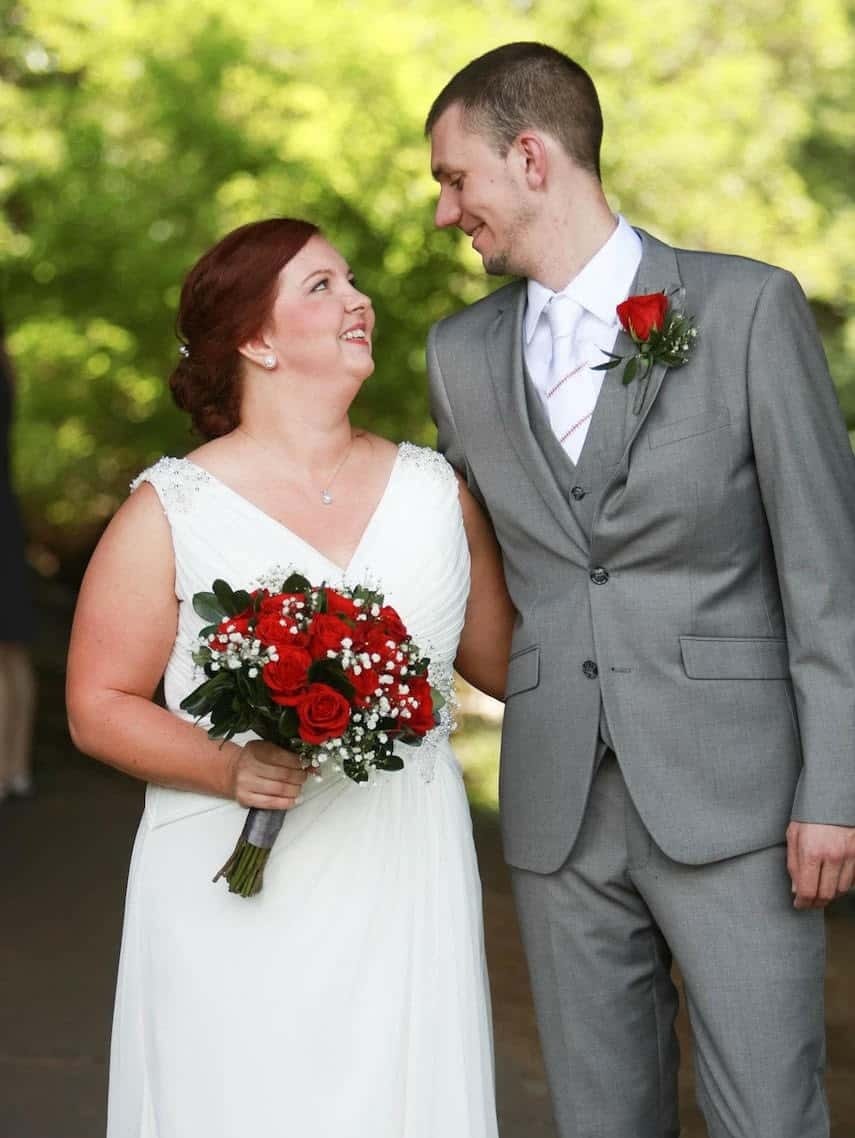- Health Is Wealth
- Posts
- Undeterred: How One Woman Paid Off $10,000 of Debt in 12 Months
Undeterred: How One Woman Paid Off $10,000 of Debt in 12 Months
At a young age, most of us are taught that the key to financial success is going to college and landing a good job. The truth, however, is that this isn’t always the case. Micah Jankowski proves that sometimes you need more than a degree and job to thrive financially.
Micah had two jobs for about 12 years: a day job as a subrogation specialist at an insurance company and a side hustle fulfilling orders at a local grocery store. But she still wasn’t getting ahead.
In fact, she was struggling with money, despite her college degree and two income streams. Micah had $9,970.40 in student loan and credit card debt but could only make the minimum payments. Sometimes, she couldn’t make them at all.
Eventually, it became too much and she knew something had to change. So she got proactive and employed a strategy to completely eliminate her debt.
Her Christmas Epiphany
On Christmas Day 2018, Micah looked around at her friends and family and realized that she was the only one with two jobs. She was working, working, and working, yet still living with debt. “I felt like I failed at adulting,” she told me.
Micah was tired of working two jobs and made it her goal to get out of debt. She knew she could quit her side hustle once she became debt-free, and one job would mean more time for reading, writing novels, and doing other things she enjoyed.
She Asked for Help
Once Micah made the decision to get out of debt, she got some help from her friend with a financial planning background. “I had a bit of a meltdown related to my debt via text and she offered her services free of charge,” Micah shared.
At first, Micah was hesitant to accept her friend’s offer. She wasn’t sure how she felt about opening up about her finances. But she decided to take a leap of faith and accept it. Fortunately, her friend was non-judgmental and gave her plenty of valuable financial advice and money-saving tips.
She also created a spreadsheet to get serious about tracking expenses, total balances, and minimum payments so that Micah knew how much she had to pay each month toward her debts.p
The spreadsheet was based on the debt snowball strategy. Using this method, Micah focused on paying off her smallest debt first. Then, she used those payments to tackle the next smallest debt and so on. The debt snowball allowed her to see quick progress and get more excited about her journey.
“I was motivated by checking my debts off and seeing account balances drop to $0. The debt snowball was ideal as it gave me the momentum I needed to knock out each balance,” Micah explained.
She Cut Back on Spending
Once Micah’s friend created a budget for her to follow, Micah scrutinized her monthly spending to find ways to cut back.
For instance, although the cafeteria at her day job was convenient, she realized she was spending about $30 per week buying food and committed to packing her lunch instead.
She also spent less on clothes and shoes and put an end to impulse purchases like buying books on Amazon. Adjusting her spending habits was tough, but as she saw her debt decreasing, she was motivated to keep going.
“Even though paying down debt was my top priority and I followed my friend’s budget as closely as I could, I didn’t sacrifice everything. I did treat myself to dinners out and entertainment every once in a while. The balance was important to me,” explained Micah.


Although she didn’t track every penny of her spending, having a specific budget to follow made it easier for her to stay on track with her debt repayment plan.
Related: 12 Tips for Paying Off Debt Fast
She Hustled Hard
While cutting her spending was helping her reach her goals, Micah knew she had to continue with her side hustle as a personal grocery shopper at a local grocery store to really make progress.
She worked two nights per week at the grocery store after eight hours at her day job. On the days she worked two jobs, she left her house at 6:00 am and didn’t return until 10:00 pm. In addition to the two weekdays, she also worked every weekend.
Side hustling 15-20 hours per week on top of her full-time job was exhausting. “I didn’t stop because I knew it was temporary. I told myself that once I paid off most of my debt, I’d quit the grocery store gig and only have one job before I turned 40,” Micah explained.
Every time she felt frustrated, she would look at the budget template spreadsheets her friend created. The changes in the numbers reminded her of her progress and reassured her that she was on the right track.
Her supportive husband helped, too. He cleaned, cooked, and took care of other tasks at home so she could relax in the little free time she had. Knowing the situation wasn’t permanent made things much easier on their marriage.
Related: 189 Best Side Hustle Ideas for 2023
Bumps in the Road
Even though Micah was making progress on her debt, the process didn’t go as smoothly as she hoped. In fact, there there were two issues that set her back. Her dishwasher broke and she needed a new one, so she put $1,100 on a zero-interest store credit card to replace it.
Then her cat Cleo developed some serious health issues that required daily medication, which cost $100 per month. When Cleo passed away, Micah used her Discover card for the $700 it cost to cremate her. Adding to her debt wasn’t ideal but those setbacks taught her to be flexible and patient during the process.
“I kept hustling and never gave up,” she said.
She Paid Off Debt and Quit Her Side Hustle
Thanks to hard work, commitment, and resolve to be debt-free, Micah paid off $2,796.90 in student loans, $1,258.12 on various store credit cards, and $5,915.38 on a Discover credit card. Her debt repayment totaled a little under $10,000 in 11 months.
Micah’s life looks a lot different today than it did in January 2019. She no longer brings dinner to work in the morning to eat in between jobs. Instead of working nights and weekends, she was able to quit her second job. She now spends that time reading, writing, and relaxing.
She’s also able to attend happy hours, birthday parties, and hockey games — things she missed out on when she was working two jobs.
She Replaced Debt Payoff with Savings
Now that she’s debt-free, Micah is able to save money, and she’s very intentional about it. She puts anywhere from $25 to $100 in her savings account each month. Even when things are tight, she tries to save at least something. “My savings strategy will prepare my husband and me for emergency expenses and allow us to take small trips here and there,” Micah said.
She also does her best to keep grocery bills low and eats almost all of her meals at home. She’s much more careful about what she uses her credit cards for than she used to be.
“Before I make a purchase these days, I think about how I’ll feel about it in the long run,” Micah explained. “If I know I’ll regret it, I don’t follow through with it. I hope to continue this mindset and stay out of debt in the future.”
The post Undeterred: How One Woman Paid Off $10,000 of Debt in 12 Months appeared first on DollarSprout.